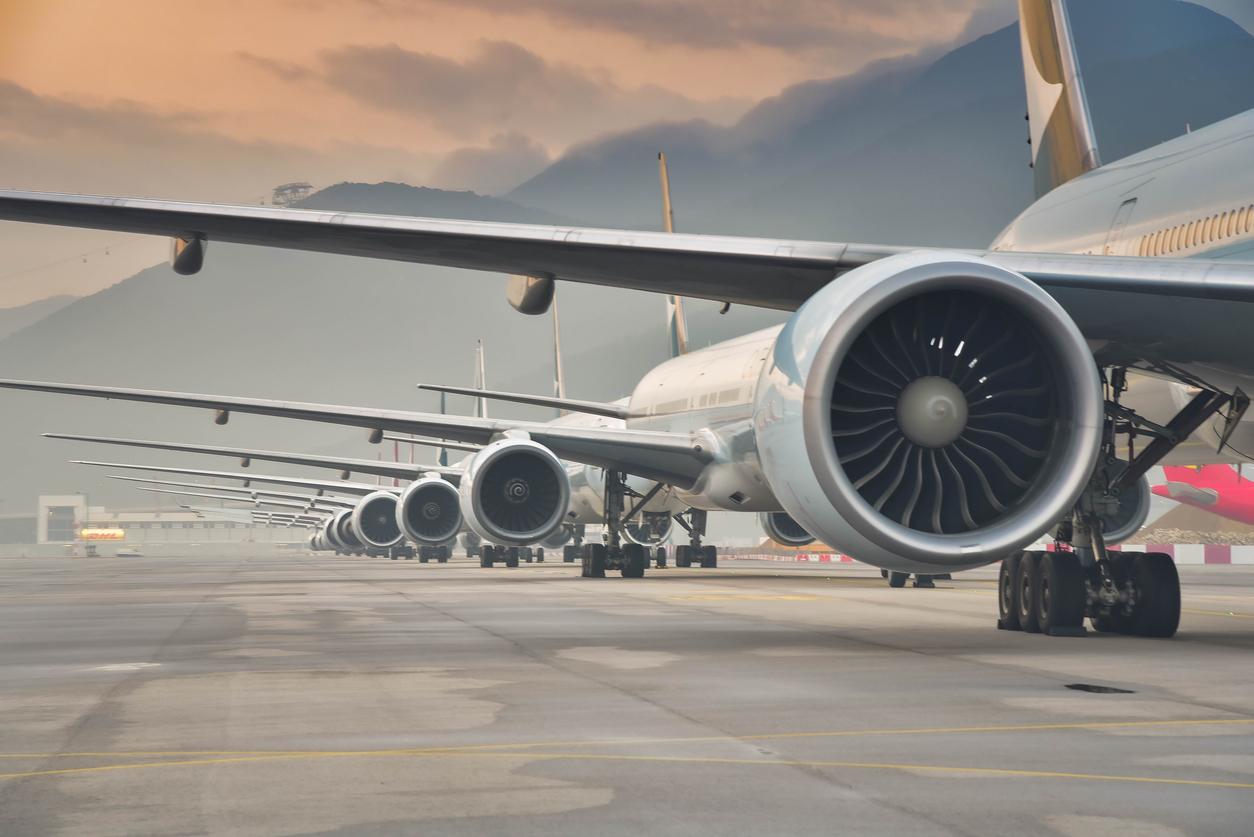Monitoring wastewater from international flights looking for pathogens could help anticipate possible pandemic risks up to two months earlier, according to a new study.

- Analyzing the wastewater of international flights would identify the risks of epidemic up to two months earlier.
- Researchers have calculated that to be effective the device should rely on 10 to 20 sentinel airports.
- It would authorize the health authorities to be able to take measures to limit the dissemination of dangerous pathogens.
During a very long flight, to pass the time, the sleeping passengers, watch a film, eat, read, listen to music … and get up once or twice to go to the toilet. And it is this very natural element that interests researchers from the Northeastern University.
They demonstrated in an article published in the journal Medicine nature On February 12, 2025 that the analysis of the wastewater for international flights could help anticipate epidemics.
Wastewater of planes: epidemic risks identified up to 2 months earlier
The device imagined by researchers to detect a risk of pandemic would be based on “10 to 20 sentinel airports” placed “strategically” in important hubs like New York, London and Dubai. Analyzes of the wastewater from international flights will be carried out to identify genetic traces of bacteria or viruses such as COVVI-19 or H5N1. “Testing 20 to 30 % of planes arriving at these airports would give very good results” assures Alessandro Vespignani, co-author of the study in a press release . “It would be great to do it for all planes of all airports, but we obviously do not have the resources for that.”
By relying on the data collected during the emergence of the Alpha variant (B.1.1.7) in the fall of 2020, the team determined that if their “sentry network” had been in place during the pandemic of the COVID-19, the virus would have been identified up to two months earlier in the United Kingdom. In addition, this makes it possible to identify asymptomatic patients as well as those who have recovered from an infection, but who continue to excrete a virus.
“The objective is to set up a surveillance system which informs us of the potential introduction of pathogens at a very early stage of an epidemic in the rest of the world “Explains Alessandro Vespignani, director of the Northeastern Network Science Institute and a distinguished professor of the Sternberg family, one of the co-authors of the study.

Pandemic: a sentry network of airports to act faster?
For legal and also logistical reasons (certain wastewater being placed in many airports in centralized tanks), it would be complicated to analyze the waters of a precise and unique flight, specifies the study. However, surveillance agents could determine the origin of the bacteria or the virus using a triangulation system.
“After five to ten detections, we can know the origin of the virus, the transmissibility of the virus and the moment of the start of the epidemic” assures Dr Vespignani. “We can see if we observe a signal in New York. If we have an alert in Los Angeles. There are many measures that you can take if you have knowledge of the situation.”
Researchers note that several airports around the world and some countries are working on tests and the development of wastewater surveillance systems. For example, Hong Kong, Canada and the United Kingdom. For them, surveillance of the wastewater for planes through an international and structured sentry network would help the authorities “Namely whether to carry out interventions such as the closure of the borders, or if it is too late or if this would cause too much economic damage”.
















